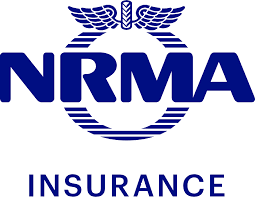Key takeaways
- Some modifications are covered by regular car insurers if you just let them know.
- A specialist insurer might be needed if your modifications are bigger like turbo or supercharged engines.
- Classic cars may be better served by a specialist car insurance policy.
How do some normal car insurers cover modifications?
| Company | What does it cover? | |
|---|---|---|
 | Budget Direct will cover you for modifications you've told it about that it has approved in writing. If you have any further modifications planned then these should also be communicated. | Get quote |
 | Bingle will cover modifications and accessories that are permanently fitted to your car as long as they don't appear on Bingle's list of exceptions. | Get quote |
| Real states it will cover "accessories or modifications made to your car that you have told the insurer about and that they've agreed to cover", but unfortunately doesn't mention any more specifics than that. | Get quote | |
Youi may provide cover to legally modified cars provided you tell it about the mods and it has agreed on specific amounts that are applicable. Examples of legal modifications include:
| Get quote | |
| Virgin says you must tell it before you make any modification to the car, but doesn't highlight which mods it does or doesn't cover. | ||
 | Coles will cover you for modifications you've told it about that it has approved in writing. If you have any further modifications planned then these should also be communicated. | More info |
| AAMI car policies automatically include cover for modifications and accessories up to the amount your vehicle's covered for, you just need to let AAMI know what accessories or modification you've added to your car. You'll also need to make sure your car is valued correctly and includes those modifications. | More info | |
 | NRMA states it will cover "any modifications, options or accessories that are attached to your vehicle". | More info |
 | Everyday Insurance doesn't state which modifications are covered, it just says you must notify it if your car has been modified. | More info |
This information is correct as of August 2024.
What car modifications are covered by insurance?
It varies depending on provider, but modifications covered by most insurers include:
- Alloy wheels
- Bicycle racks
- Bull bars
- CD stackers
- Chrome exhaust systems
- Driving lights
- Leather seats
- Reversing cameras
- Roof racks
- Tow bars
- Sunroofs
Modifications typically not covered by mainstream insurers include:
- Custom paint work
- Roll bars or roll cages
- Racing harnesses
- Nitro or hydrogen fuel-equipped engines
- Turbo or supercharged engines
Notifying your insurer about a car modification

"Most insurers will cover accessories and basic modifications without needing to be notified. There are certain things that some insurers will want to know about or even won't cover, though. If you're fitting something like a turbocharger on the car, a roll cage or getting it dipped in custom paint, it could be a good idea to get on the phone to your insurer first."
What type of insurance do I need?
CTP greenslip insurance is the only mandatory car insurance but if you'd like further protection then it's worth considering comprehensive, third party fire and theft or third party property damage car insurance.
With certain modifications, such as those listed above, you may not be covered by a standard policy from a mainstream insurer. Instead, you'll need to take out one of the following with a specialist insurer, designed for modified vehicles:
- Regular use. Personal or business purposes.
- Recreational use. For cars not used for regular everyday driving, but still driven occasionally for recreation.
- Limited recreational use. For vehicles driven fewer than 60 days or 5,000 kilometres a year.
- Club/concessional use. Cover for modified cars that are registered under a club or concessional scheme.
- Restoration/laid-up. For unregistered vehicles being restored, provided they are stored securely in a garage.
What do specialist insurers cover?
The following is a list of insurance companies who offer modified car insurance for exotic or historical vehicles in Australia:
This information is correct as of August 2024.
When can specialist car insurance help?
Specialist car insurers appreciate that people take great care in investing time and money into their vehicles and are therefore more willing to insure vehicles with performance-enhancing modifications. Certain modifications, such as to the engine, chassis or suspension, may prevent you from securing cover from a mainstream insurer or make the premiums unreasonable.

Unique car insurance
Specialist insurers usually cover unique modifications by adding substantially to the excess you pay. They also tend to charge more for more powerful vehicles. Boosting your car's power by 20% will probably boost your premiums by at least 20% as well. You won't necessarily be able to mitigate the cost increases by installing modifications for safety, because the added value of the modifications still contribute to the overall cost of the vehicle.

Specialised insurance for modified classic cars
Specialists are particularly good at taking care of modified classic cars. They are better able to negotiate a more accurate agreed value for the car rather than simply resorting to market value, while understanding the needs of the owner.
For example, they may offer flexible lay-up periods for classic cars which don't see much use. They are also likely to offer you the choice of your own mechanic and the option to retain valuable or rare parts salvaged from your car in the event of an accident. Mainstream insurers can rarely offer such flexibility for modified classic cars.
Should I use modified car agreed value or market value?
When looking for modified car insurance you'll have to decide with market or agreed value cover. In most cases, it will probably be best to go for an agreed value policy, as outlined below:
- Market value. This policy pays you the car's current market value, subject to depreciation, at the time of the claim. Thus, the car's replacement value fluctuates constantly, meaning a modified car covered by this policy will almost always be underinsured. Market value is rarely used for modified or classic cars.
- Agreed value. Agreed value is how much you and your insurer agree the car is worth. This number is locked in at the time of purchase and can only be changed at certain times. This is especially useful for heavily modified or classic cars, but generally costs more. Agreed value is almost always used for modified or classic cars.
Is it possible to get low-cost cover for modified cars?
This depends. How cool is your car? Like any policy, there are plenty of ways to reduce your premiums when buying modified car insurance. These include:
- Driving a less expensive, less powerful vehicle
- Nominating drivers, which can earn you a discount
- Restricting the age and number of drivers
- Choosing a pay as you drive option
- Increasing your excess
- Adding security such as a car alarm or immobiliser
- Packaging your insurances with one provider for a loyalty discount
- Shopping around for a no claims bonus discount
- Insuring for market value rather than agreed value
- Buying online to get a discount (up to 20%)
Insurance rules for modified cars
- Is your modification legal? Naturally, all modifications made to your car must be street-legal, otherwise no insurer is even going to look at you. Also, if you are stopped by the police with illegal modifications, you could face a fine or worse.
- Was your modification approved? In Australia, modifications must be approved by the motor vehicle licensing department in the state or territory you reside in. They must comply with Australian Design Rules, traffic rules and regulations and also with the National Code of Practice for Light Vehicle Construction and Modification (NCOP).
- Do I need to tell my insurer if I make modifications to my car? Yes. If you don't tell your insurer, it can reject your claims and cancel your policy. If your vehicle is under warranty and you don't tell the insurer, you may void the warranty entirely. And if you don't tell the licensing authorities and your modification turns out to be illegal, you could receive a defect notice and a substantial fine and have your vehicle de-licensed or impounded.
Modifications which are typically permitted include:
- Additional lighting
- Air shock absorbers
- Alarm systems
- Radio and stereo systems
- Roof racks
- Single tone air horns
- Stabiliser bars
Modifications which are typically not permitted include:
- Dark window tinting
- Loud exhaust systems
- Changes to the engine that do not fit the legal standard
- Illegal changes to the chassis
- Non-compliant changes to the tyres
- Changes to the suspension that do not comply with legal standards.
How can modifications affect the cost of insurance?
There are 2 main reasons that a car modification will boost your premiums:
- It increases the risk of an accident. For example, getting a custom paint job might drive up the risk of an accident if it's shinier and reflects more light into other drivers' eyes.
- It increases the risk of your car being stolen. The same paint job could increase the risk of your vehicle getting stolen if it makes your car look fancier and thus more appealing to a thief.
Exactly how much a particular modification will affect your premiums really depends on the specifics of the modification. The only general rule is that an insurance company will be much more willing to give you a good deal if the modification has been installed by a licensed professional, rather than by you.
Sources
Ask a question
More guides on Finder
-
Cheap Car Insurance Australia
Here's a guide to getting affordable car insurance that will still cover the essentials.
-
How to register a car in Victoria
Find out how to get your car registration transferred in Victoria.
-
Blue Slip NSW
Your guide to Blue Slips.
-
Do demerit points affect your car insurance?
Your guide to demerit points and how they affect your car insurance.
-
Bank of Queensland Car Insurance Review
Bank of Queensland car insurance offers three levels of cover, flexible premium payment options and a lifetime guarantee on repairs.
-
Car insurance for P-platers
Find affordable and comprehensive car insurance for P-platers with this handy guide.
-
Car insurance deals and discounts February 2026
Compare the latest car insurance discounts and deals to save further on your policy or access bonus offers. Discounts up to 25% for purchasing online
-
Car insurance for under-25s
Discover the steps to get affordable car insurance if you are under 25.
-
Best Car Insurance Australia
Explore our analysis and see how you can find the best car insurance for your needs.
-
Comprehensive car insurance in Australia
Compare cover from a range of car insurance providers and find out some of the things you will be covered for under a comprehensive policy.





